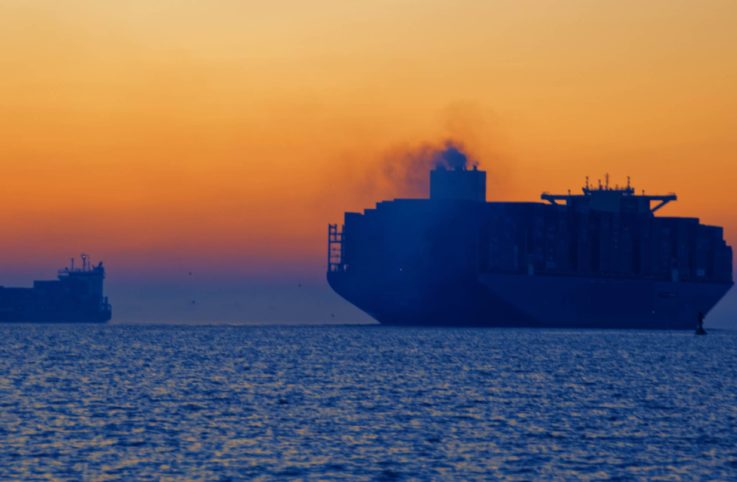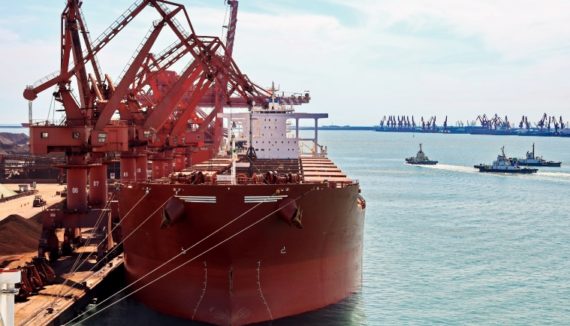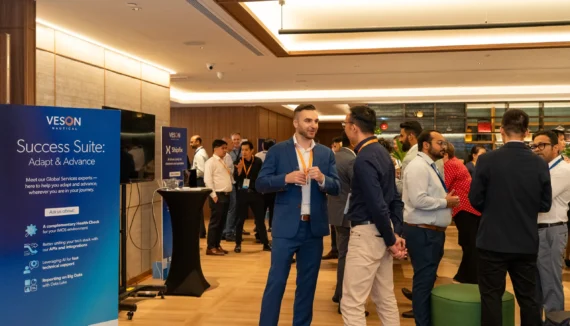Decarbonization has become increasingly important in commercial maritime shipping decision making.
The sense of urgency in addressing climate crisis stems from a variety of forces within the maritime ecosystem, from industry-wide initiatives like the Sea Cargo Charter, to regulations like IMO 2020, IMO 2023, and EU ETS, to increased pressure for more proactive ESG strategies all along the value chain and the fundamental importance of protecting our oceans.
In this blog post, we’ll recap some key points covered in our recent webinar, including decarbonization’s importance for organizations on both sides of the contract as well as its commercial significance and how it relates to cost.
Watch the On-Demand Enabling Sustainable Freight Decisions Webinar for more.
Veson’s Decarbonization Approach
There are three things that underpin our approach to decarbonization at Veson, and they center around data. They are data collection, analysis, reporting & sharing and decision support throughout the workflow. With standardized data, customizable reporting, and enabling informed decisions during key workflows, organizations are equipped to surface meaningful insights where and when they are most relevant to make more sustainable decisions.
In practice, we are addressing these three pillars by helping our clients to:
- Actively manage and monitor CO2 impact throughout the voyage
- Assess emissions’ effect on pricing
- Gain visibility into sustainability goals within their organization
We enable this through our continuous development of the Veson IMOS Platform, as well as through native integrations to specialized sustainability-related solutions within the Veson Partner Network.
The topic of decarbonization is a priority on all sides of the trade.
Decarbonization for Tonnage Charterers
Tonnage charterers, who don’t own or operate their own vessels but view maritime shipping as a critical part of their global supply chain, are focused on conducting their own internal supply chain operations more sustainably, but also working with environmentally conscious carriers as a part of their larger sustainability strategies.
Decarbonization for Owner-Operators
Vessel owners and operators are facing more and more regulations around emissions, which makes it highly important to comply. On top of that, however, it is good for business, as their counterparties desire and seek out environmentally responsible carriers.
Decarbonization From a Commercial Standpoint
While the science behind emissions tracking, reporting and reduction strategies continues to evolve it is clear that there is a need for a sustainability lens to be applied while making commercial decisions.
Sustainable practices can result in cost reductions, but they can also lead to higher costs. Both of these sides are important to consider from a commercial standpoint, and your VMS should enable you to do so.
From the cost reduction side, more sustainable voyages are often ones that avoid congestion, reduce fuel consumption, and have more efficient routes. Your VMS should aid in efficient voyage planning to achieve these goals.
On the other side, more sustainable voyages may also prioritize carbon reduction over speed, account for the cost of carbon, and utilize more alternative fuel types that may be more costly. It’s important to find the right balance between these practices, and a good VMS should help you do so by presenting the right information at the right points in the workflow.
By continuing to invest in our product and partnering with innovative companies that are focused on enabling their clients to achieve their sustainability goals we feel we are poised to enable our community of clients to make more sustainable decisions and achieve their business objectives.
To learn more about how Veson is serving emissions-related client needs and see a demo, watch the full Enabling Sustainable Freight Decisions On-Demand Webinar.




